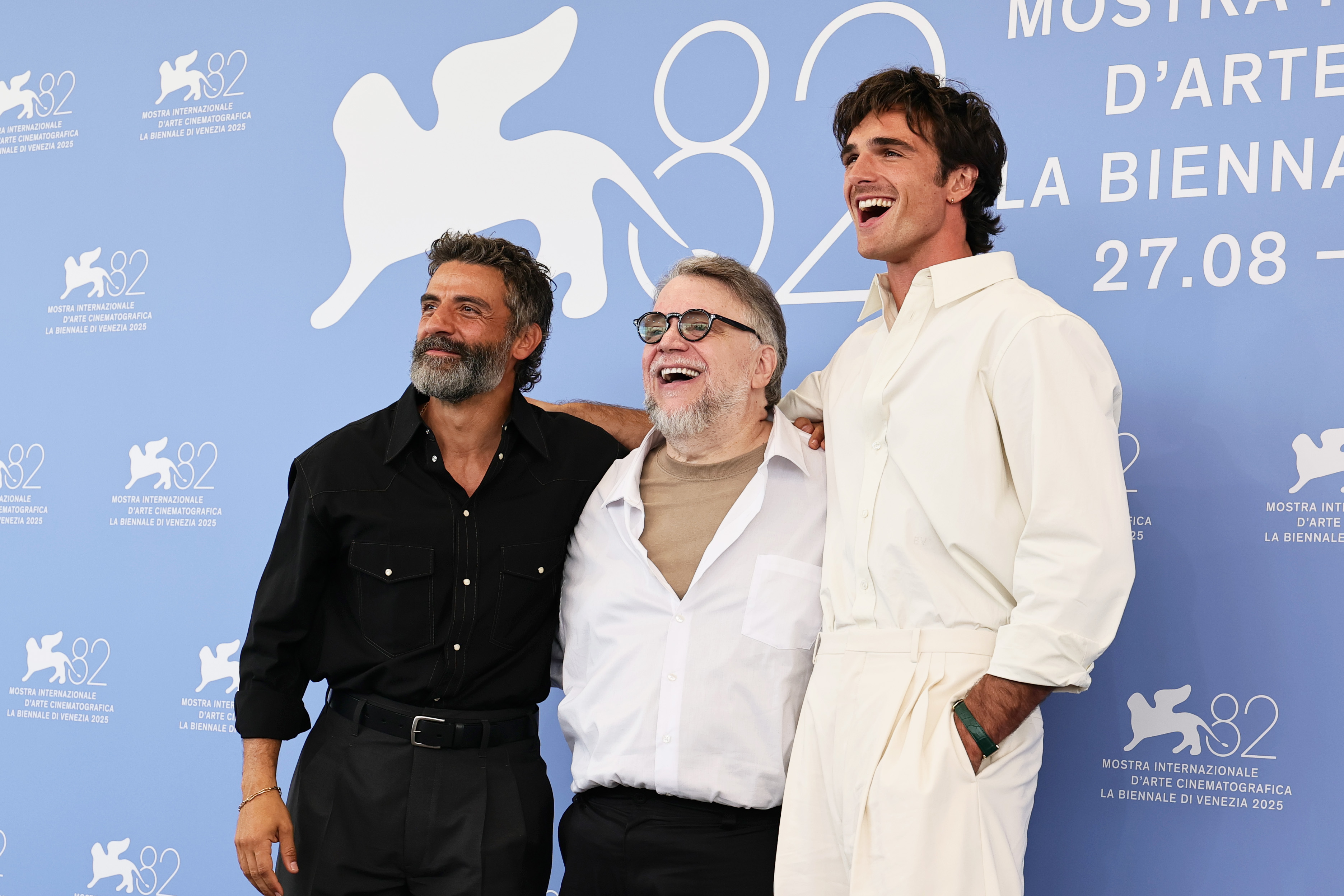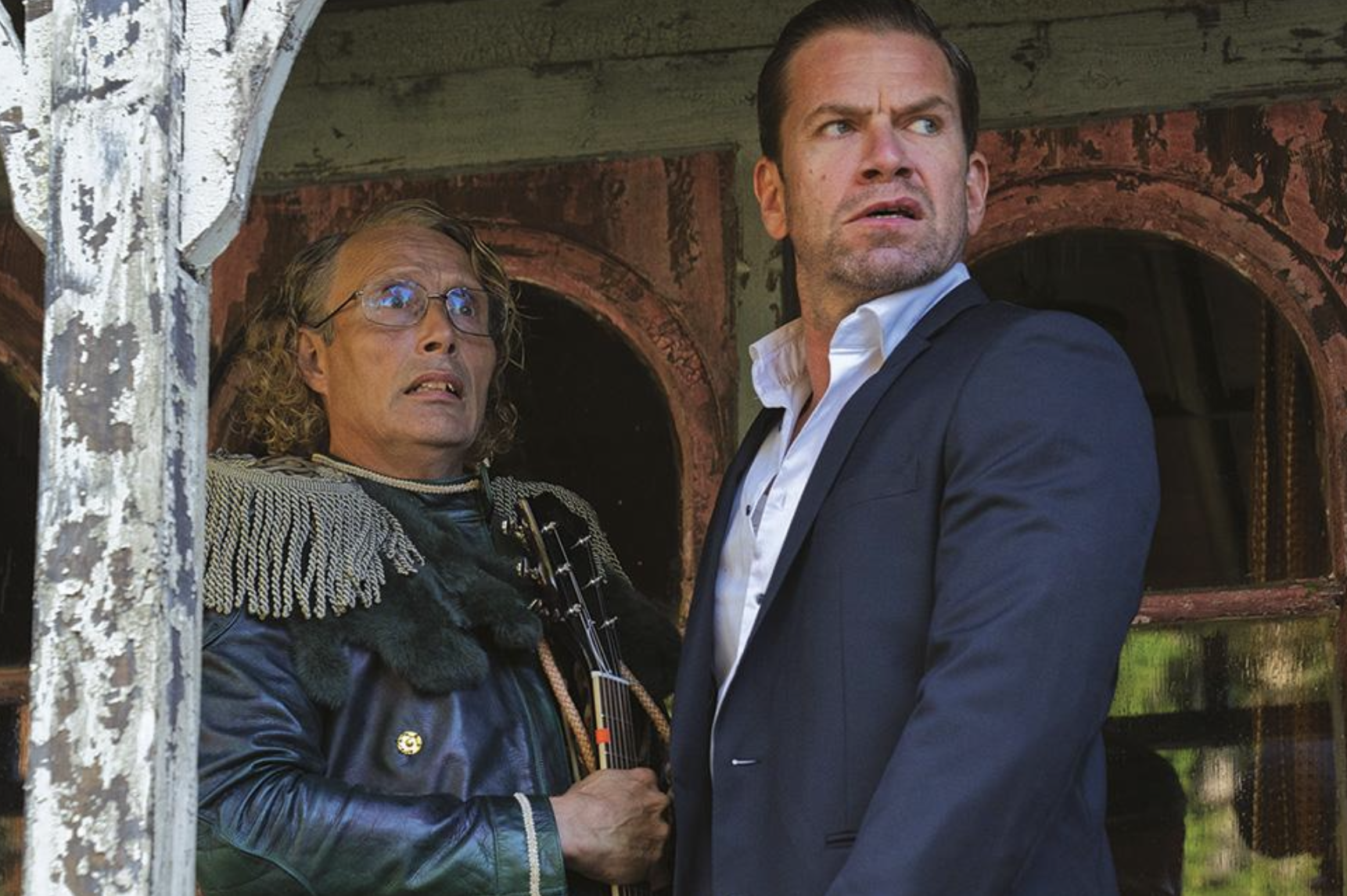There’s a word that comes to mind when it comes to American journalist, author, and advice columnist E. Jean Carroll: irrepressible. She’s not just someone you can’t hold down, but someone you can’t hold back.
Open and brassy and honest and fun, she’s the kind of person you’d trust to share horror stories over drinks: not only she will find comedy in your darkest fears, but she’ll also provide actionable advice. As a journalist, Carroll is the person to send into weirdly specific cultural trenches, emerging triumphant with stories about everything from living in both an actual frat house and the homes of many of her ex-boyfriends (and their current partners) to Hunter S. Thompson’s legacy and winky jokes about Ernest Hemingway.
She’s gonzo and she’s great, and Ivy Meeropol’s documentary “Ask E. Jean” makes clear how hard-won all of it was, how complicated, and how it almost held Carroll back.
The film opens with Carroll’s landmark 2019 defamation lawsuit against Donald Trump, sparked by a New York magazine article in which she asserted that the then-real estate magnate sexually assaulted her in the mid-’90s. What followed was incredibly complex and arduous, legally and personally, and Meeropol does a fine job of keeping that chapter’s many threads in an easily understood format. (Of note: Trump was found liable for sexual abuse and defamation and ordered to pay Carroll nearly $90 million in damages. He has yet to pay a dime.)
Mostly, the filmmaker keeps an eye on what was, for Carroll, the most important element. After she went public with her story, and published a book on the same topic, in early 2019, Trump called her a liar on every platform imaginable, from interviews to his own “Truth Social.” For Carroll, whose life and career centered on her credibility as both a person and a reporter, this was a bridge too far. This what finally pushed her to do something that forever altered her life.
While the film’s opening is serious and upsetting, Meeropol opts to quickly shift gears. She takes us back nearly three decades, to Carroll’s debut into the New York City media world. We’re greeted by funky footage of the sparkling city, shots of her incredibly high-energy TV show “Ask E. Jean,” and a general dunking into Carroll’s wonderful brand of “no-nonsense” (Oprah’s own words!) advice and journalism. The attendant whiplash is necessary as an introduction to Carroll, but the constant switching between Carroll “now” and “then” starts to grate.
Meeropol utilizes this looping timeline to tell Carroll’s story. Consider Carroll’s wrenching depositions, then zing back to her 1964 appearance on “To Tell the Truth.” Check out Carroll explaining how her Elle advice column was the stuff of lifelong dreams, then enjoy a segment about her childhood fascination with Dear Abby and the like. Curious about her cheery personality, still so abundant, even now, even after everything? It’s time for footage chronicling her teen years as an actual cheerleader.
While these reflections offer some useful context to Carroll, this circuitous plotting is distracting. At any age, at any time, E. Jean Carroll is inherently compelling.
Clocking in at just 91 minutes, Meeropol effectively uses a wide array of footage, research, talking head interviews, and more to tell the story. The kaleidoscopic assortment of everything from intimate interviews (Carroll and her friends at the Waverly Inn, literally eating a “girl dinner” of fries, Caesar salads, and martinis) and absolutely gobsmacking archival footage (Carroll’s videotaped depositions from her 2019 and 2022 lawsuits) is informative and rich, allowing us to get to know Carroll as we also learn the worst bits of her life story.
What is most revelatory, and necessary, about “Ask E. Jean” proves to be what is most painful. It’s essential that Meeropol present Carroll in her full irrepressible glory. We see how important the truth is to Carroll and how it’s something she’s built her life on and truly believes in protecting. In the process, the documentarian also builds out the film’s underlying truth. How could someone like E. Jean Carroll, someone so open and honest, someone who reveled in telling it straight, who believed in the power and magic of women, not only be a victim of a horrific act but then stay quiet about it for so long?
That’s the key to Carroll’s life, and to the life of many other victims of sexual assault, defamation, and other gender-based violence. Not just, how did this happen? But, as is often lobbed at victims, how did you allow this to happen? As we get to know Carroll, we see how keenly those questions still impact and confound even her.
Even Carroll wasn’t able to confront some of her biggest pains and problems. A sequence from the “Ask E. Jean” show, in which she interviews a rape victim and comes painfully close to disclosing what the duo have in common, will stick with viewers.
She tells us repeatedly she feared that someone else would tell her Trump story, and get it wrong. Her can-do attitude was overwhelmed by what happened to her. Her rabble-rousing, rah-rah sense of sisterhood and girl power was for others; for her, it was completely inacessible. And that’s not all.
These contradictions are what make “Ask E. Jean” really spark. Carroll may have made her bones as someone with ready answers and an irrepressible spirit, but Meeropol’s film is best when its subject finally realizes even the best advice only applies in the moment, in certain places, for certain people. Living in the after of those questions? That’s much more important.
Grade: B
“Ask E. Jean” premiered at the 2025 Telluride Film Festival. It is currently seeking U.S. distribution.
Want to stay up to date on IndieWire’s film reviews and critical thoughts? Subscribe here to our newly launched newsletter, In Review by David Ehrlich, in which our Chief Film Critic and Head Reviews Editor rounds up the best new reviews and streaming picks along with some exclusive musings — all only available to subscribers.



